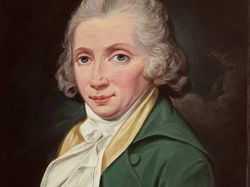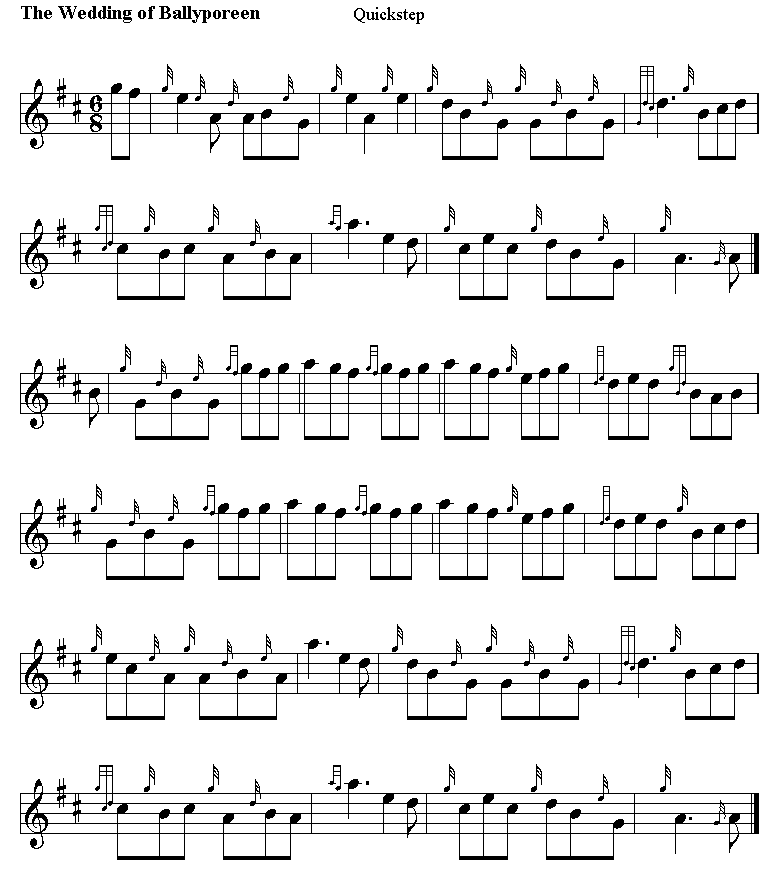 |
||||

Best viewed in
|
Ballyporeen (Irish: Béal Átha Póirín) is a village in County Tipperary, Ireland. It lies in the Galtee-Vee Valley with the Galtee Mountains to the north and the Knockmealdowns to the south. The River Duag which is a tributary of the Suir runs through the village. The origins of the name are not definitively understood. The most accepted Irish translation is the "Ford Mouth of the Round Stones". Those stones may have been river deposits or dye stones left there by inhabitants from a cloth dyeing process. Another theory is the original name got corrupted over time; a 1618 document referred to "Bealanporan", this and possible previous forms would alter its meaning. One respected historian believed 'Powers-town' was the correct translation of its origins. The village has been for a long while known to the lovers of song as the scene of “The Wedding of Ballyporeen,” and the house where it was supposed to have been written. English sources make a claim of authorship of the song for James Field Stanfield (1749-1824) - shown above, Dublin-born, who seems to have had a life in the theatre as a jack-of-all-trades, including comedian, actor, scenery painter and playwright. He wrote a comic opera called The Fisherman, performed in 1786 and was for some years manager of a theater in Scarborough, and of a company in the north of York. Stanfield's song was called "The Irish Nuptials, or the Wedding at Ballyporeen" and was first performed at Scarborough in 1797. His biography reads: James Field Stanfield was born in 1749 at Dublin. He for the Catholic priesthood France. He was He joined the Eagle (under Captain David Wilson) in Liverpool on a slaving expedition to Benin as a common sailor on 7 September 1774. He was arrived on the Eagle in Benin, and transferred about 40 miles inland to a slave-trading fortress at Gato for eight months in November 1774. He was was hired by Captain Wilson for the Middle Passage to Jamaica on board the True Blue, one of a crew of 15, of whom eight died. 190 slaves were sold in Jamaica, before the True Blue sailed back to Liverpool (arriving 12th April 1776) - one of only four survivng crew members, including the captain in June 1775. He was an actor in 1777 at Manchester. He married Mary Hoad on 25 October 1785 at The Parish Church, Cheltenham; Certificate signed by Hugh Hughes, curate, and parties' signatures witnessed by Sarah Trapp - illiterate - and James Morris. NB Groom spelled name with "ff". James Field Stanfield was "The Fishermen", a two-act comic opera, unpublished in 1786. He was Ho made his debut as part of Tate Wilkinson's York circuit company (his wife also being a performer) on 7 October 1786 at Doncaster. He was "Observations on a Guinea Voyage" was published - a series of letters addressed to The Rev'd Thomas Clarkson in May 1788. He was "The Guinea Voyage", a dramatic poem published in 1789. He was "Life of the late John Howard" (the prison reformer) published anonymously by W Thompson of Newcastle in 1790. He was a brandy merchant between 1793 and 1796 at Sunderland. He was Songs and verse (15 pieces) published in the Freemasons' Magazine between 1793 and 1798. He married Maria Field Kell on 29 October 1801. James Field Stanfield was "Essay on the study & composition of biography" published by subscription in Sunderland - "moralistically erudite" but "confused and ineffective in a very strange degree" in 1813. He was He taught elocution and composition in April 1814 at Edinburgh. He was a prompter between 1819 and 1820 at Glasgow. He died on 9 May 1824 at Wootten Street, Lambeth, London; (his home) "aged 74", having had a total of ten children by his two wives. He was buried on 15 May 1824 at St Mary's, Lambeth.
Lyrics
|
|||

